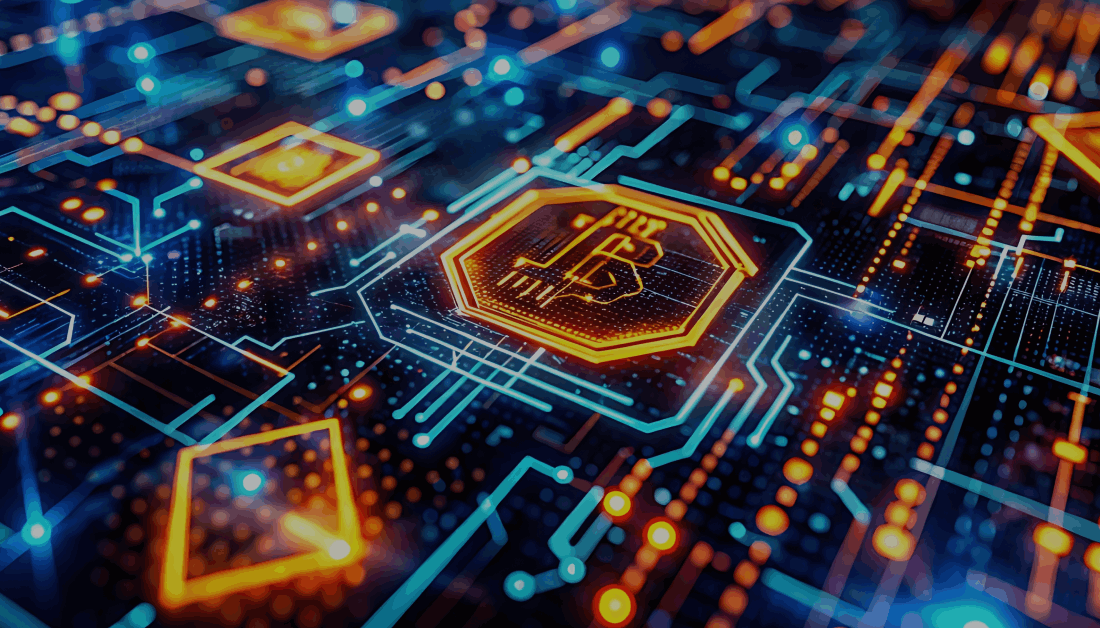
At the intersection of blockchain and artificial intelligence (AI), decentralized science (DeSci) is reshaping the research landscape. By tackling challenges such as funding shortages, restricted data availability, and sluggish peer-review systems, this synergy fosters a more open and accelerated approach to innovation. Through AI-driven solutions and decentralized frameworks, DeSci is paving the way for a more transparent, efficient, and accessible scientific ecosystem.
The Synergy Between AI and DeSci
AI and decentralized science (DeSci) both strive to dismantle centralized barriers in research and knowledge sharing. DeSci leverages blockchain to create a transparent, secure, and equitable framework for scientific collaboration, while AI enhances this ecosystem by analyzing vast datasets, streamlining processes, and revealing insights that would otherwise go unnoticed.
This integration offers researchers unparalleled opportunities. With blockchain ensuring data integrity and AI driving deeper analysis, DeSci platforms foster global cooperation. Scientists can securely exchange information, secure funding through tokenized economies, and gain access to advanced tools that were previously inaccessible. Together, AI and DeSci are revolutionizing the scientific landscape, making it more open, efficient, and interconnected.

Revolutionizing Research Funding and Accessibility
Traditional research funding remains concentrated in centralized institutions, often sidelining unconventional or high-risk projects. DeSci challenges this status quo by enabling researchers to secure funding directly from a global network through AI-powered tokens. This decentralized approach allows contributors to support initiatives they believe in, with tokens sometimes reflecting a stake in the research’s progress or success. By aligning incentives, DeSci creates a more transparent, inclusive, and community-driven funding model.
AI enhances this ecosystem by assessing funding proposals, identifying promising research, and predicting potential outcomes based on historical data. This empowers backers with valuable insights into the impact of their contributions. Beyond financing, AI tokens facilitate access to essential scientific data, tools, and research materials—eliminating paywalls and institutional barriers. With these innovations, researchers worldwide can participate in groundbreaking work, regardless of location or institutional affiliation.
Driving Scientific Breakthroughs with AI-Powered Insights
AI’s ability to convert vast amounts of raw data into meaningful insights is a game-changer for decentralized science. Research generates massive datasets, but interpreting them efficiently remains a challenge. AI addresses this by detecting hidden patterns, correlations, and anomalies that might otherwise go unnoticed, accelerating the pace of discovery.
In decentralized networks, AI-driven analysis enhances collaborative research. For example, scientists tackling global challenges like climate change can pool data on DeSci platforms, allowing AI to uncover trends and solutions rapidly. This speeds up innovation and ensures that research findings are accessible and actionable.
AI also plays a critical role in revolutionizing the peer-review process. AI reduces delays and subjectivity in scientific validation by automating tasks such as verifying methodological rigor and detecting potential biases. Meanwhile, blockchain secures the transparency and immutability of reviews, reinforcing trust in the research publication process.

Enabling Global Scientific Collaboration
DeSci platforms are revolutionizing how researchers connect and collaborate across borders, bypassing traditional gatekeepers. By leveraging blockchain, these platforms ensure the transparent exchange of data and ideas, while AI streamlines collaboration by identifying researchers with complementary skills and interests. AI-powered matchmaking can recommend potential research partners based on previous work, expertise, and shared objectives.
Language barriers are further minimized through AI-driven translation and transcription tools, allowing seamless communication between researchers from different linguistic backgrounds. Additionally, contributions to collaborative projects are fairly compensated through tokenized incentives, fostering a system that recognizes and rewards all participants. By combining blockchain’s transparency with AI’s analytical capabilities, DeSci is building a truly global and inclusive research ecosystem where collaboration is efficient, impartial, and accessible.
Overcoming Challenges and Charting the Future
While the integration of AI and DeSci holds immense potential, it also presents challenges. Regulatory uncertainty, the technical complexities of implementation, and ethical concerns surrounding AI decision-making and data privacy must be carefully managed. However, these hurdles are far outweighed by the transformative possibilities of this emerging model.
The long-term vision for AI and DeSci is a decentralized, transparent framework where research is conducted collaboratively, funded equitably, and shared without restrictions. AI-powered tokens are poised to become a key driver of scientific progress, creating new pathways for innovation across various disciplines, from medicine to advanced technologies.
Conclusion: A New Era for Science
The convergence of AI and DeSci is more than just an advancement in technology—it represents a fundamental shift in how scientific discovery takes place. By decentralizing funding, facilitating global collaboration, and leveraging AI-driven insights, this movement is creating a more inclusive, efficient, and innovative research ecosystem. As these technologies evolve, their influence on science and society will continue to grow, shaping the future of knowledge creation and discovery.



